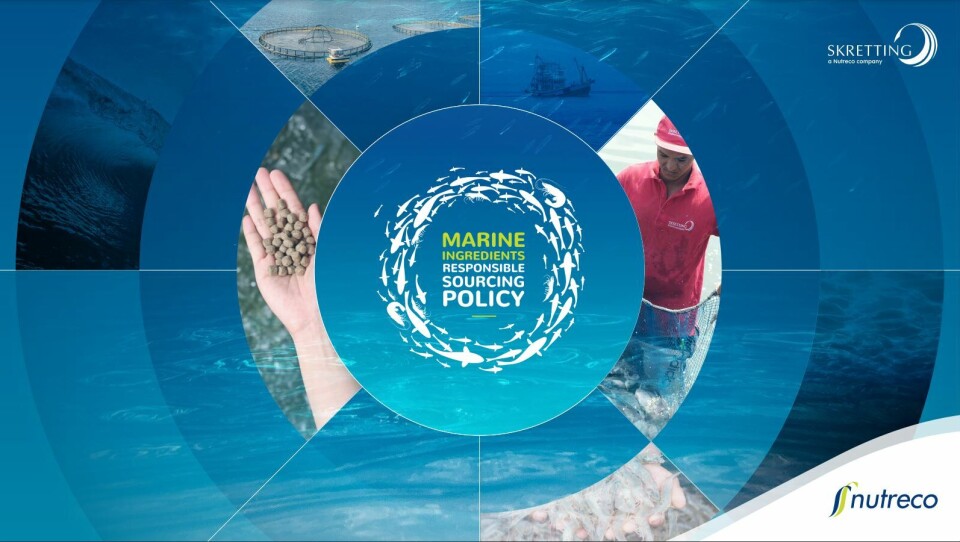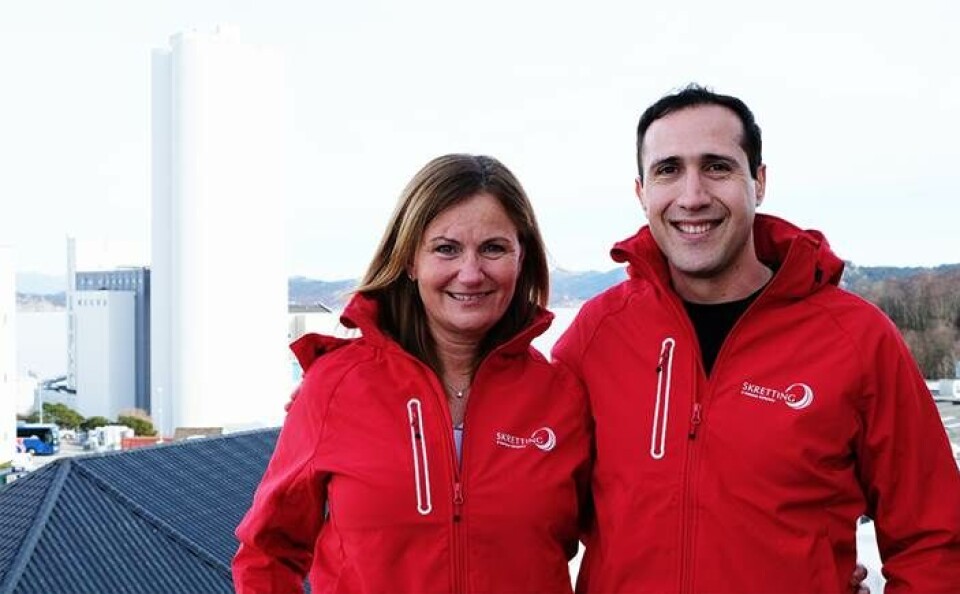
Skretting sets out its rules for sustainable sourcing
Aquafeed producer Skretting and its parent company Nutreco have published a new responsible sourcing policy that will be used as a practical guide to decide on the type of marine ingredients that can be sourced for its global operations.
The policy aligns with Nutreco’s Sustainability Road Map 2025, which aims to ensure that by 2025, Skretting sources marine ingredients that are 100% certified or coming from a fishery improvement project for its global operations, as well as ensuring that all the fishmeal and fish oil used to produce feed originate from fisheries that are managed according to the UN Food and Agriculture Organisation’s Code of Conduct for Responsible Fisheries.
The policy was developed through internal collaboration within Skretting and Nutreco at a global and local level to reflect the realities in the markets and included comments and revisions from external stakeholders.
Purchasing targets
The guide includes:
- Specific criteria on what to buy according to five sustainability classes of marine ingredients coming from whole fish, by-products from wild fish catch and by-products from aquaculture, aligned with the most important fishery management certifications in the industry.
- Clear purchasing targets for each sustainability class, both the relative share of purchases and a defined timeline to reach the ambitions set in Nutreco’s Sustainability Road Map 2025.
- Mapping of countries identified with a high risk of illegal, unreported and unregulated (IUU) fishing activities. Marine ingredients from these countries cannot be sourced unless they come from the highest sustainability classes.
- Mapping of countries identified with a high risk of forced labour on board fishing vessels. For these countries there are additional requirements to marine ingredient manufacturers. Skretting said it is the first company in the world that communicates open and transparent criteria towards marine ingredient suppliers in this area.
In 2021, 80% of fishmeal and fish oil originating from whole fish and by-products that were purchased by Skretting came from fisheries certified according to the MarinTrust or Marine Stewardship Council programmes, or from fisheries that were part of a MarinTrust Fishery Improvement Programme (FIP). This compares to 69% in 2020.

An important role
“The responsible use of marine ingredients is under constant scrutiny and we have an important role to play to contribute with more transparency in the industry,” said Skretting sustainability manager Jorge Díaz in a press release.
“Through this policy we’re open about the criteria that we will use to source our ingredients and we want to be accountable for that. Reaching our targets is not something that we can do alone, and it comes with challenges, but we will not shy away from them and will keep collaborating with all the relevant stakeholders to identify and mitigate the risks of our operations.”
Core to accountability
Veronique Jamin, communications and external relations director for marine ingredients organisation IFFO, said a sourcing policy such as Skretting’s was a key asset for the whole marine ingredients value chain.
“By involving public disclosure of the origin of the marine ingredients used in feed, which is core to accountability and citizen empowerment, it meets customers’ expectations,” said Jamin.
“We encourage customer-facing organisations to publicise such documentation, which maps key stakeholders and fisheries across the world. It also supports a better understanding of the role increasingly played by by-products as marine ingredient raw materials as well as collective efforts undertaken as part of Fishery Improvement Projects (FIPs).”























































